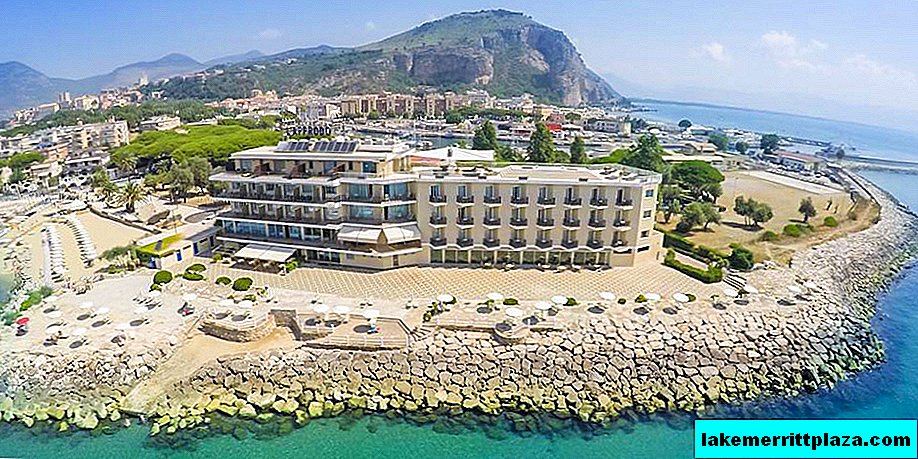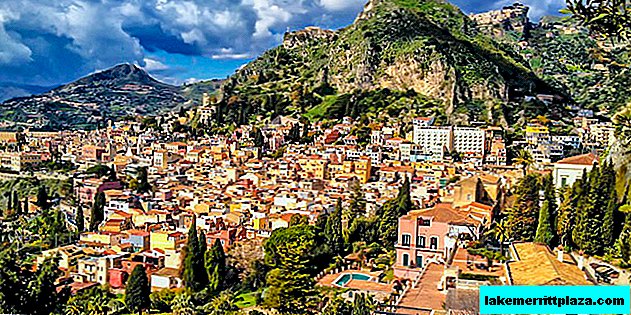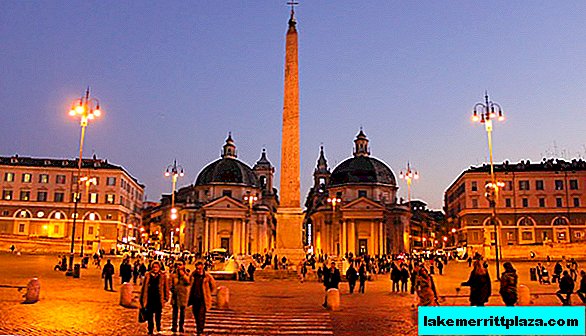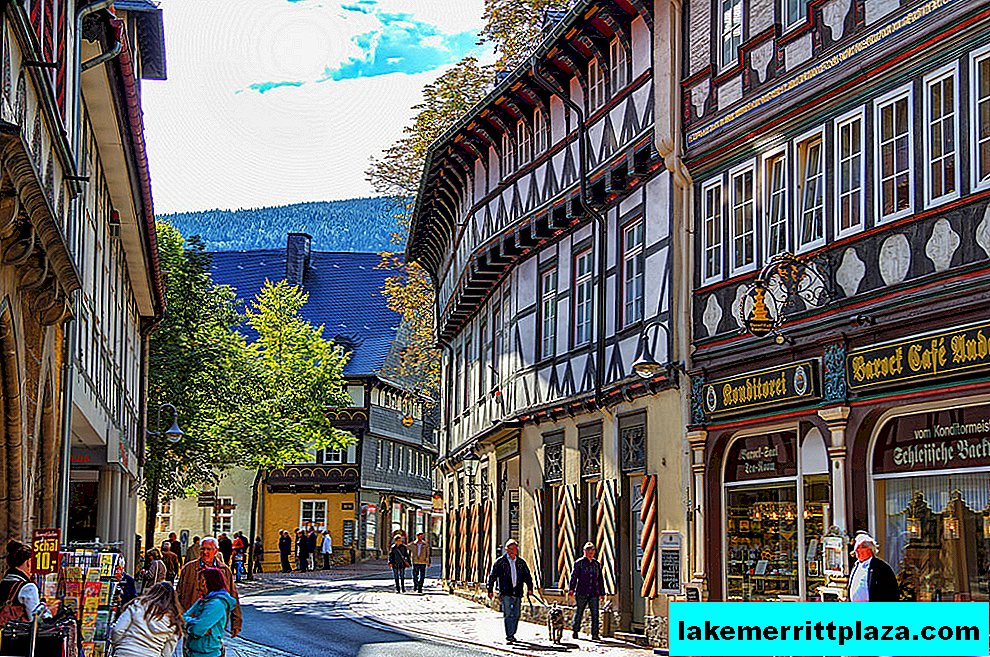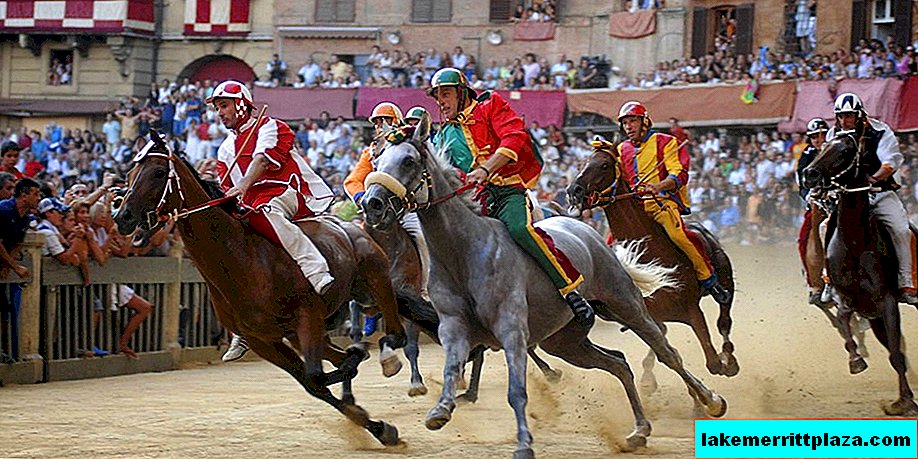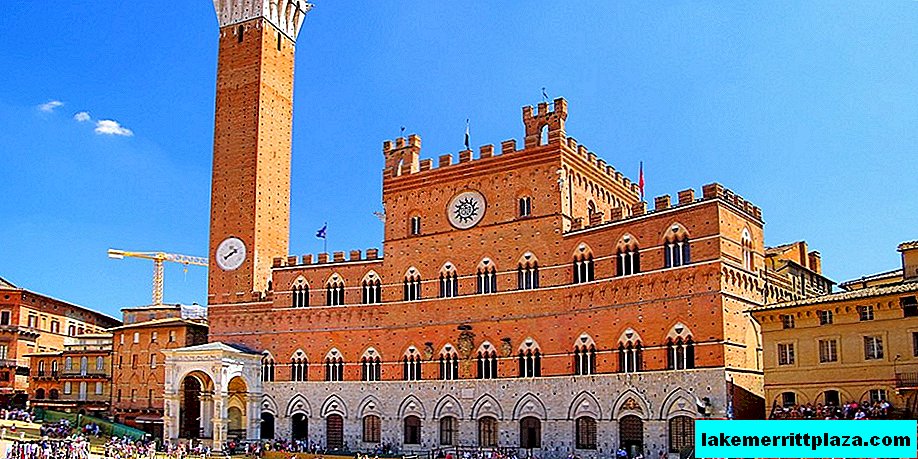Eduardo's plays are the real lively noisy many-voiced Naples. We say Napoli - we mean Eduardo. We say Eduardo - we mean Napoli.
This great man, in addition to high awards, including the Grand Cross of the Order of Merit for the Italian Republic, had the highest award - people's love, which the author did not have more.

His name was Eduardo. Just Eduardo, without adding a last name. And everyone understood who it was.
Eduardo de Filippo. Actor and director, writer, whose plays have incorporated Italy itself, southern Naples with a bright sun, blue sea and the enjoyment of every moment of life.
Translator Valery Popov writes: “It seems that nature itself ordered Naples to be from above, when looking at the city from the Vomero region (Italian. Vomero), from a panoramic platform near the fortress of Sant'Elmo (Italian. Castel Sant'Elmo) - Certosa di "San Martino (Italian Certosa di San Martino) or from the Posillipo region (Italian Posillipo, Nap. Pusilleco) resembles a gigantic theater, spread out amphitheater at the foot of Mount Vesuvius!"
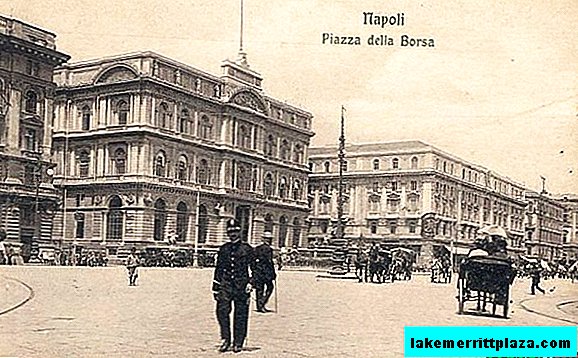
It was here that on May 24, 1900, a boy was born who was destined to become an actor. De Filippo did not have to invent many plots for his plays - he took them from his own life. The illegitimate son of the famous Neapolitan actor Eduard Scarpetta went on stage as a kid: the famous father appeared with him in one of the plays. Later, in 1929, Eduardo little by little tastes the pen and together with his brother and sister creates the “Humorous Theater”. It was a difficult time when pathetics dominated the scene, and humor was not easy.
... 1945. The war had just ended, and people wanted not only bread, but also vivid spectacles in which they would recognize themselves and their lives with its sorrows and joys, love and hate, hopes and disappointments. And the plays of Eduardo de Filippo began their triumphal procession not only around the country, but also around the world.
Here are the main plays of the playwright, whose knowledge you can show off before the Neapolitan and earn his infinite respect.
"Naples, the city of millionaires"

The main character is Gennaro Evine, by the way, this name is unusually popular in Naples, as the patron saint of Naples is Saint Gennaro. So, Signor Gennaro is very unhappy - he did not have a relationship with his wife, his son stepped on the thieves' path, and his daughter was dishonored. But after Dazhennaro himself escapes from German captivity, he begins a spiritual rebirth. The social drama is that a person who has acquired the moral meaning of life can emerge victorious from a difficult life situation.
The play was a great success on many world stages.
"Filumena Marturano"
The most famous play of the Neapolitan playwright, filmed by the no less famous director Vittorio de Sica. Sophia Loren and Marcello Mastroianni starred in the lead roles. The brilliant cast, sparkling dialogues, one hundred percent getting into the theme provided the play with a long stage life and the love of spectators around the world.
Filumen's whole life provides peace and comfortable living conditions to his beloved Soriano, who likes it quite. He lives for his pleasure, littering money, traveling, flirts with young saleswomen, one of whom is going to marry. And Filumena decides to pretend to be sick ... What happened next, you know, and which of the readers have not watched or read this masterpiece yet, I suggest you find out the finale yourself. So much more interesting, isn't it?
But it is important to understand that both Filumena and Soriano are precisely Neapolitans who idolize the place in which they were born and raised.
"My family"
Social comedy on how important it is sometimes to lose a voice. Alberto Stigliano feeds his voice in the most literal sense - he is a radio announcer. It would seem that what else is needed for happiness - there is a wife, a son and a daughter, but Alberto is unhappy. The wife is addicted to cards, the son unsuccessfully tries himself in an acting role, and the daughter behaves inappropriately as a young Signorina. And the announcer pretends to have lost his voice, got sick. And this step brings the family together.
Of course, you have learned the very same technique that de Filippo uses in Filumen Marturano. "Imaginary sick" is the turning point that turns the family on a new happy road.
"De Pretore Vincenzo"
A comedy about a thief, which in one of the Russian translations sounded like this: "A thief in paradise." A thief who at the end of his life suddenly appears before the Lord God and receives absolution.
"Mayor of Sanita"
In this case, the mayor is the “godfather” of one of the Neapolitan quarters, Antonio Barraccano. The image of an honest and decent criminal has been exploited in world drama for a long time, take at least Schiller’s plays. But in this play, the emphasis is on the mores of the non-Polish people, on their relationship with the police. Antonio wants to live in good conscience, but in the end dies from the bullet of one of the criminals, never re-educating him.
"Cylinder"
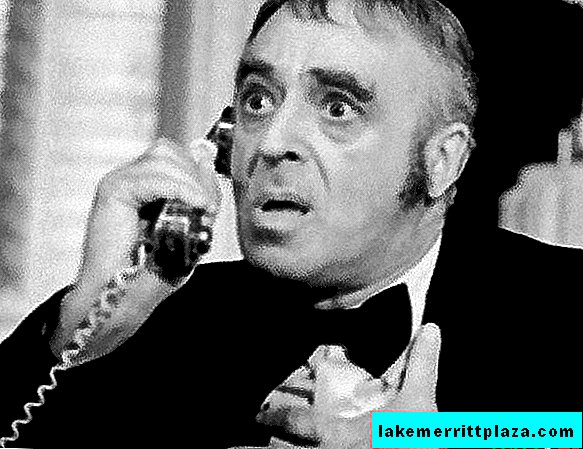
The play, written in 1965, was subsequently filmed by the author himself, acting as an actor in it. The scene is, of course, Naples, and the poorest region. Two couples living in the neighborhood - young and old - are plotting a tricky move in order to pay off the debt on the rent. The young spouse pretends to be a lady of easy virtue in order to present the client with the body of the allegedly deceased spouse. As planned, the client should take flight, but in reality it turns out the opposite.
Eduardo de Filippo was the real king of Italian drama. It is especially valuable that he wrote his plays in the Neapolitan dialect, only later translating them into Italian literary language.
De Filippo constantly talked with youth, organized the studios of young playwrights.
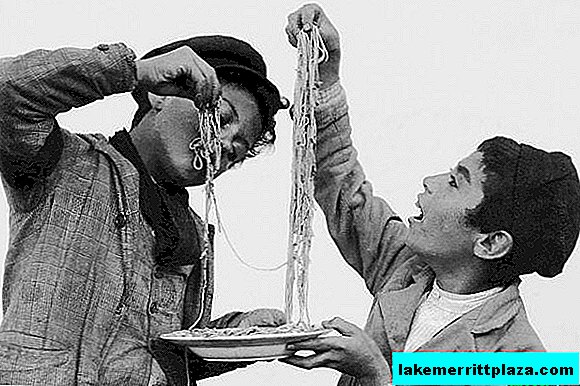
If you want to see and feel the real living Italy right now - open the book of Eduardo de Filippo, see the adaptation of any of his plays. And in a couple of minutes you will already hear outside the window of the whine of the Neapolitan children playing football, and you will surely smell the fresh strong espresso carefully carved by Filumena for your lover ...
Viva, the king! Vivat, Eduardo!
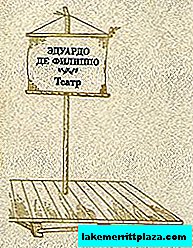 | The book "Theater" Eduardo de Filippo - buy a book ISBN with delivery by mail in the online store OZON.ru |
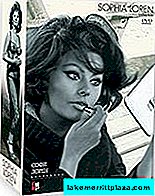 | Sophia Loren Collection. Yesterday Today Tomorrow. Marriage in Italian. Sunflowers - buy the movie Ieri, oggi, domani / Matrimonio all'italiana / I Girasoli on a licensed DVD or Blu-ray disc in the OZON.ru online store |
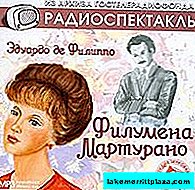 | Filumena Marturano (MP3 audiobook) - buy Filumena Marturano (MP3 audiobook) in mp3 format on a disk from the author Eduardo de Filippo in OZON.ru online bookstore |

